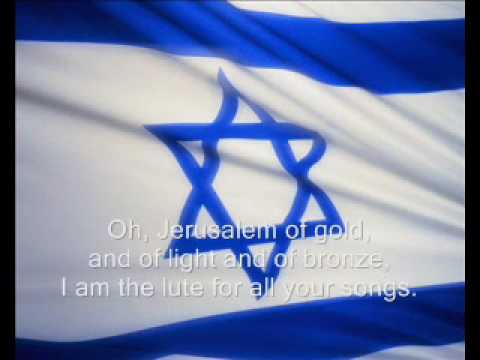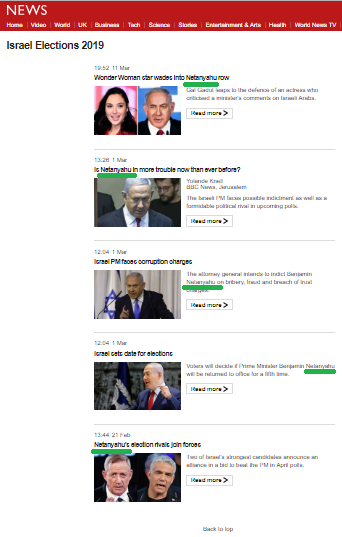The June 8th edition of BBC Radio 4’s ‘Today‘ programme included an item (from 47:53 here) by Tom Bateman which is very similar to the written report he had published on the BBC News website four days earlier.
Listeners first heard presenter Sarah Montague give the following context-free account of the Six Day War: [emphasis in italics in the original, emphasis in bold added]
Montague: “President Trump’s recent visit to the Middle East may have revived some hope, however fragile, of a renewed peace process between Israel and the Palestinians. It comes at a significant moment. This week, from the 5th of June, this week marks 50 years since Israel launched an overwhelming strike against three of its neighbours: Egypt, Syria and Jordan. It believed those countries were planning an invasion. The Six Day War, as it became known, reshaped the region. Our Middle East correspondent Tom Bateman’s been speaking to some of those who remember it.”
To the tune of an Israeli song, Bateman begins his report with a highly airbrushed portrayal of the nineteen-year Jordanian occupation of parts of Jerusalem.
Bateman: “In the summer of 1967 ‘Jerusalem of Gold’ sang of Jewish longing for the city then divided between Israeli and Jordanian control.”
Listeners then hear part of Bateman’s previously promoted interview with Meir Shalev.
Shalev: “Before 1967, when I was eight and nine and ten, my father used to take me along the border line inside the divided Jerusalem and used to tell me ‘you will grow up, you will become a soldier and you will fight over this city’.”
Bateman: “Israeli author Meir Shalev was almost 19 – the same age as his country – when war broke out. He found himself in the north fighting Syrian troops.”
Shalev: “Most of the country felt threatened. Some were even panicked by the possible prospects of this war. People were talking about the possibility of Israel being destroyed and us being exiled or killed.”
After an archive recording of a news bulletin, listeners hear from another of the interviewees that appeared in Bateman’s written report – Jordanian pilot Mahmoud Erdisat.
Erdisat: “We were very, you know, excited that finally we get our chance to fight the Israelis and get Palestine back.”
Refraining from clarifying to listeners that Erdisat’s reference to getting “Palestine back” in fact means invading Israel and taking land which never belonged to Jordan but was designated for a homeland for the Jewish people by the League of Nations, Bateman introduces the speaker.
Bateman: “Mahmoud Erdisat – a now retired general – was training to be a fighter pilot in the Jordanian airforce.”
Erdisat: “But from the second day we came to know that the situation is not exactly what we have in mind.”
Bateman: “And how did you feel at that point?”
Erdisat: “Very bad, very bad. The consequences were so hard that it was the beginning of the end of the Arab secular state. It was a blow to the Arab nationalism.”
Listeners then hear an unidentified archive recording relating to “Arab refugees…displaced from their homes in what is now Israel” before Bateman’s next interviewee is introduced.
Bateman: “Hello, nice to meet you. At her home in East Jerusalem I met Fatima Khadir, surrounded by the ornaments she makes calling for Palestinian statehood. She was 8 when the war broke out and escaped Jerusalem’s Old City with her family, who she says were already displaced after the first Arab-Israeli conflict.”
Listeners hear a voiceover which erroneously implies that a country called ‘Palestine’ was involved in the Six Day War.
“It felt like Palestine fell in six hours, not six days. We were transferred to a camp on the border between Jordan and Saudi. We were living in terrible conditions. Harsh winters, floods and hot summers. I still feel the hurt, pain, and intolerable struggle. We lost our homes back then and we were never able to go back. I’m still hurting. We are still suffering.”
Explaining a clip from another archive recording, Bateman continues.
Bateman: “A radio reporter with Israeli troops told listeners ‘we are inside the Old City of Jerusalem’. ‘The Temple Mount is in our hands’ said a commander before prayers at this return to Judaism’s holiest sites. Yoel Bin Nun was among those fighting.”
Voiceover Bin Nun: “When we were at the Temple Mount my commander asked me ‘Yoel, what do you say now?’. I told him 2,000 years have passed. The meaning is that 2,000 years that the people of Israel were in the diaspora – persecuted, tortured, antisemitism – those 2,000 years were over.”
Bateman: “He believed victory came from heaven and still feels the same way, he says. He went on to become a rabbi and a significant figure in the movement to build Jewish settlements on the West Bank after its capture in 1967. The war’s legacy is different though for the writer Meir Shalev who describes returning from the conflict and confronting his father.”
Shalev: “We started arguing about the results of the war and I told my father ‘we took a bite we will suffocate on’. He was very angry with me. Now 50 years later I think Israel didn’t do much except dealing with the results of the occupation.”
Bateman closes with his take-away message:
Bateman: “The war of 1967 lasted six days. It left consequences still unresolved fifty years later.”
Like Bateman’s written report, this one also clearly aims to steer BBC audiences towards the inaccurate view that the contemporary Palestinian-Israeli conflict is entirely the product of events that began fifty years ago when – according to Sarah Montague’s context-free version of events – Israel woke up one sunny morning and “launched an overwhelming strike” that a week later turned into “occupation”. And like the BBC’s additional reports on the Six Day War, this one too is a lot more concerned with promoting a politicised narrative than it is with enhancing audience understanding of that event in history.
Related Articles:
BBC’s Bateman erases history and context from his account of the Six Day War
Jeremy Bowen promotes political narrative in BBC’s Six Day War centrepiece
BBC’s filmed Six Day War backgrounder falls short
A third feature promotes the BBC’s chosen Six Day War narrative





